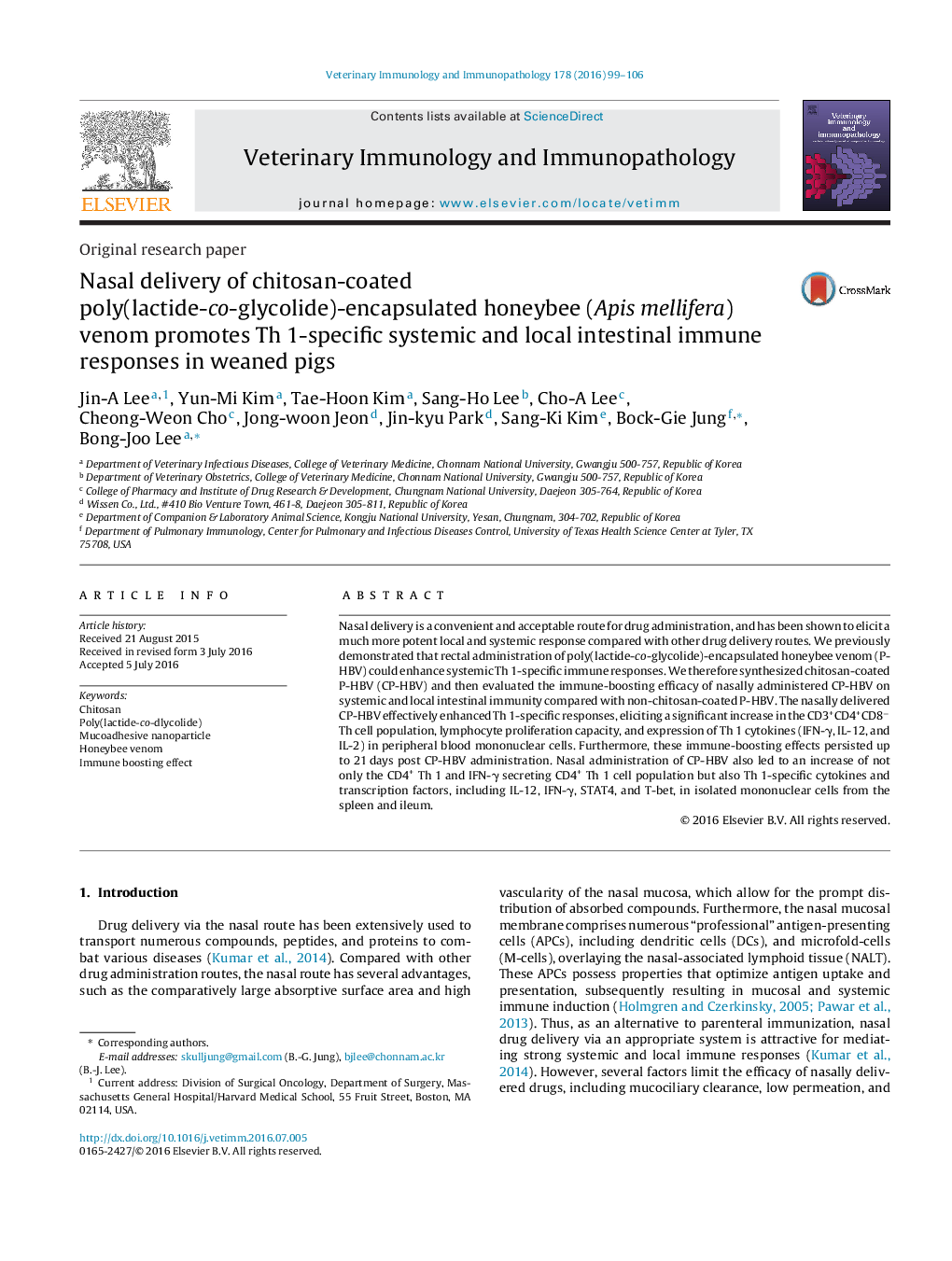| Article ID | Journal | Published Year | Pages | File Type |
|---|---|---|---|---|
| 2461299 | Veterinary Immunology and Immunopathology | 2016 | 8 Pages |
Nasal delivery is a convenient and acceptable route for drug administration, and has been shown to elicit a much more potent local and systemic response compared with other drug delivery routes. We previously demonstrated that rectal administration of poly(lactide-co-glycolide)-encapsulated honeybee venom (P-HBV) could enhance systemic Th 1-specific immune responses. We therefore synthesized chitosan-coated P-HBV (CP-HBV) and then evaluated the immune-boosting efficacy of nasally administered CP-HBV on systemic and local intestinal immunity compared with non-chitosan-coated P-HBV. The nasally delivered CP-HBV effectively enhanced Th 1-specific responses, eliciting a significant increase in the CD3+CD4+CD8− Th cell population, lymphocyte proliferation capacity, and expression of Th 1 cytokines (IFN-γ, IL-12, and IL-2) in peripheral blood mononuclear cells. Furthermore, these immune-boosting effects persisted up to 21 days post CP-HBV administration. Nasal administration of CP-HBV also led to an increase of not only the CD4+ Th 1 and IFN-γ secreting CD4+ Th 1 cell population but also Th 1-specific cytokines and transcription factors, including IL-12, IFN-γ, STAT4, and T-bet, in isolated mononuclear cells from the spleen and ileum.
